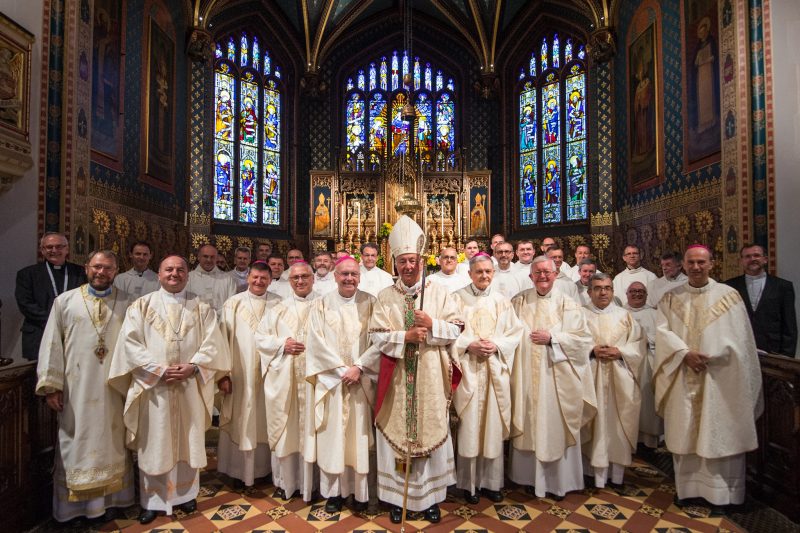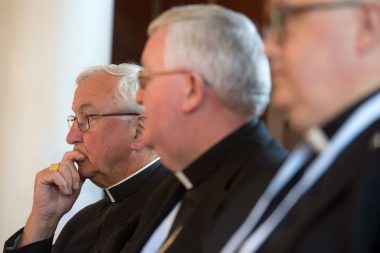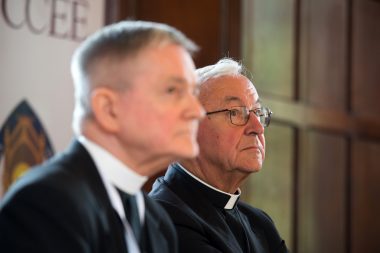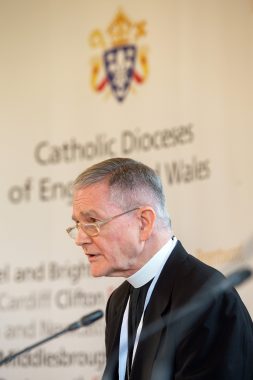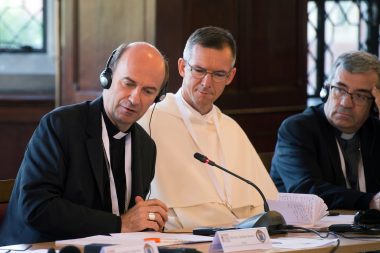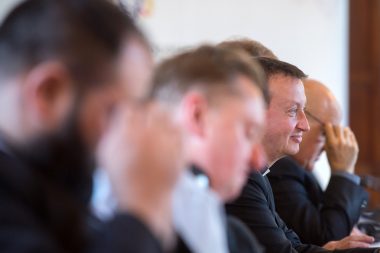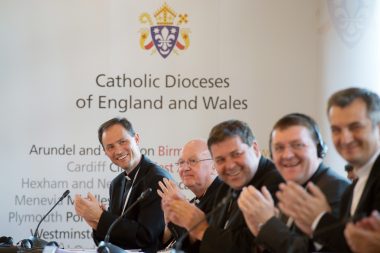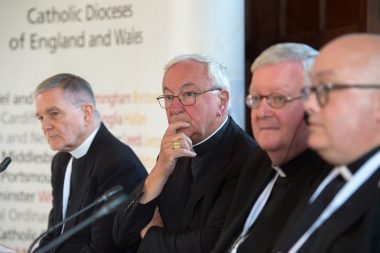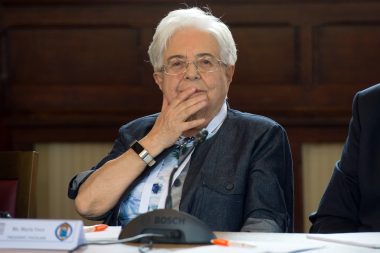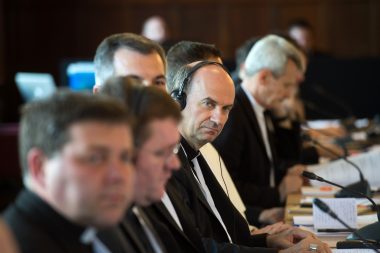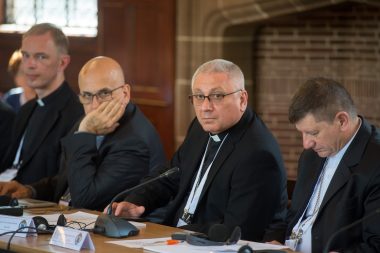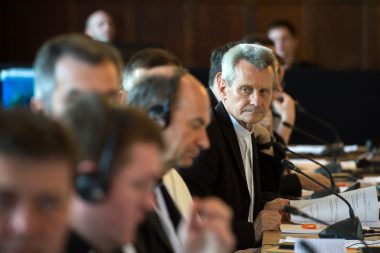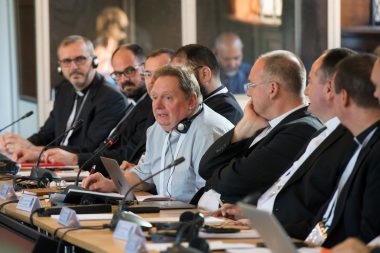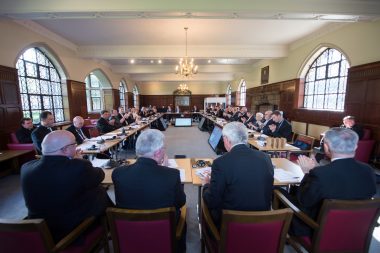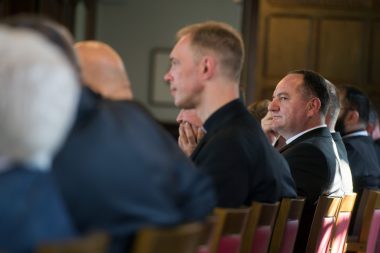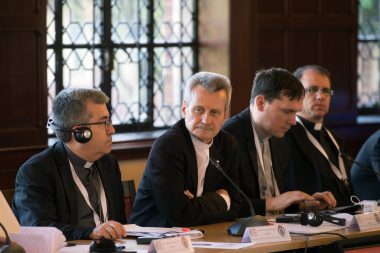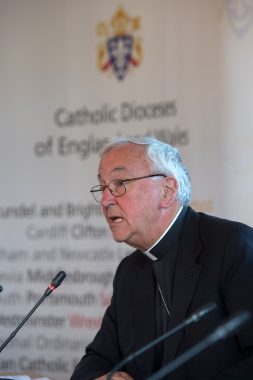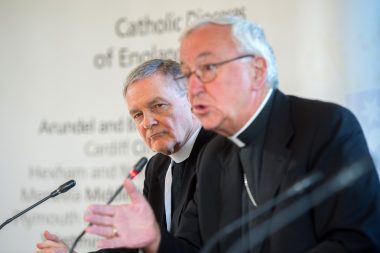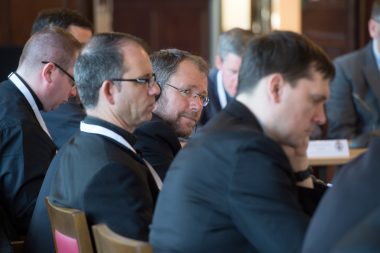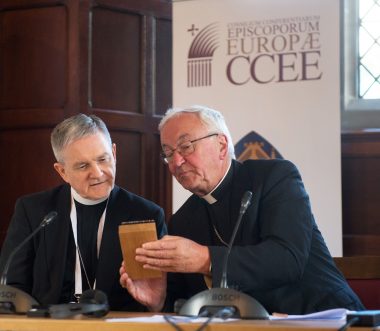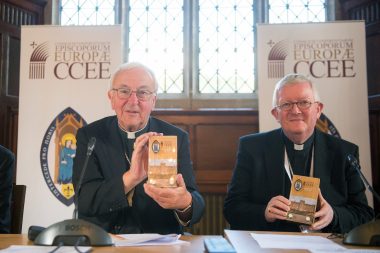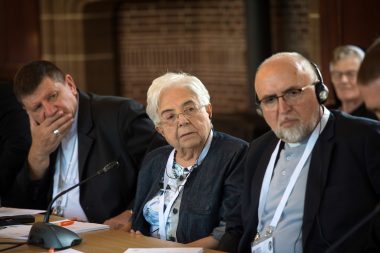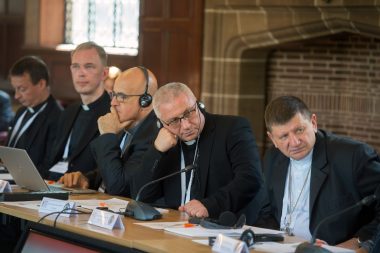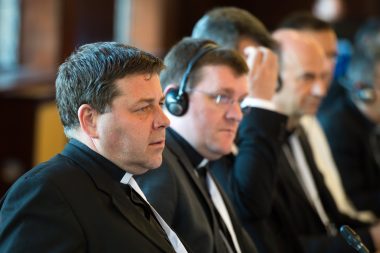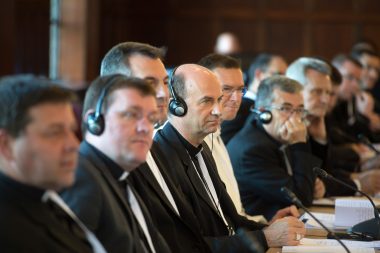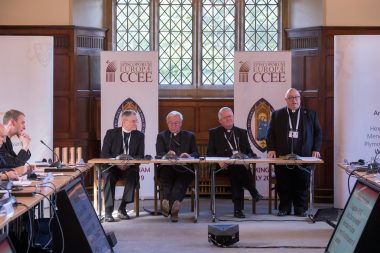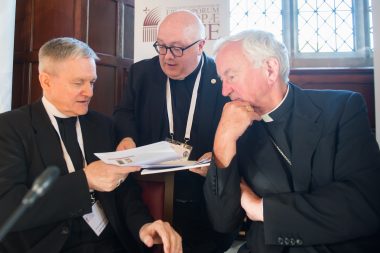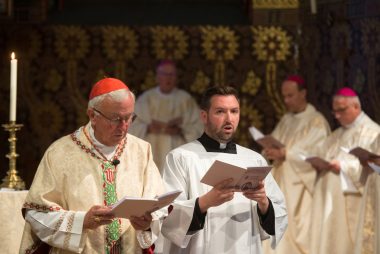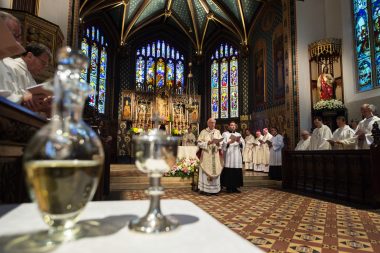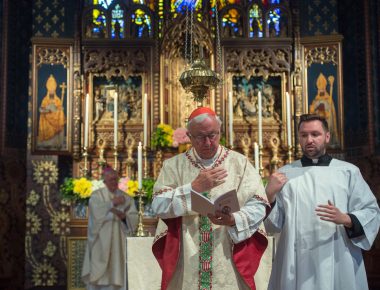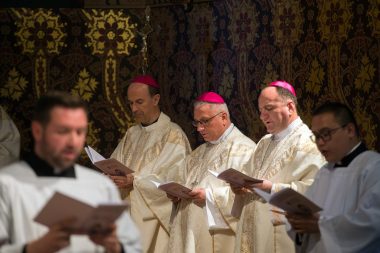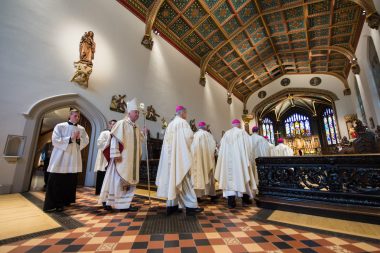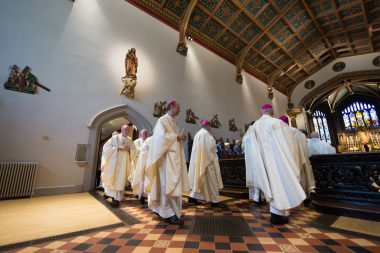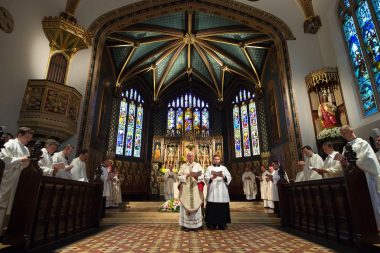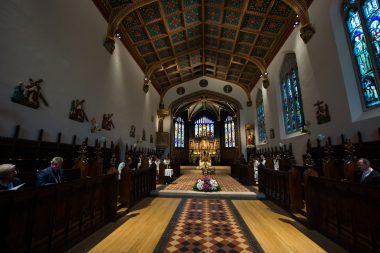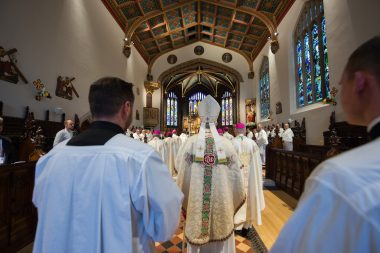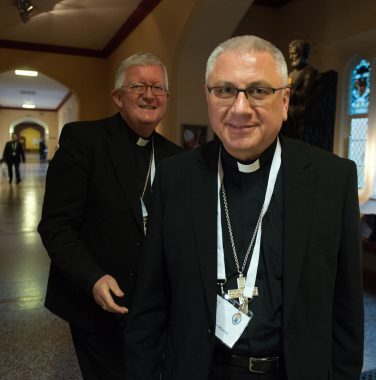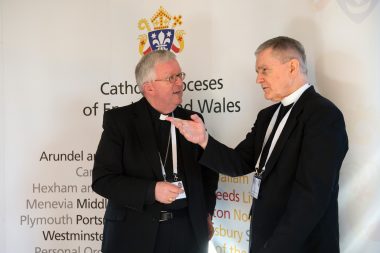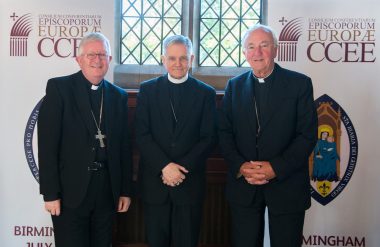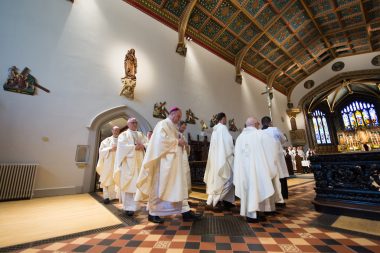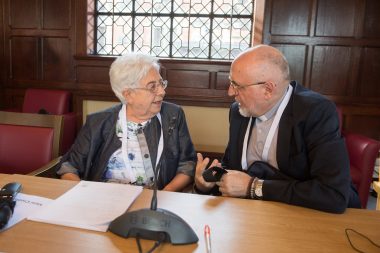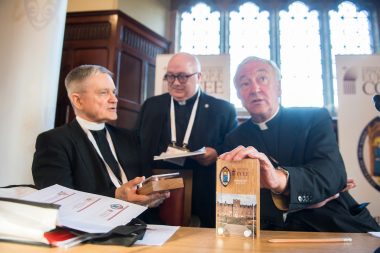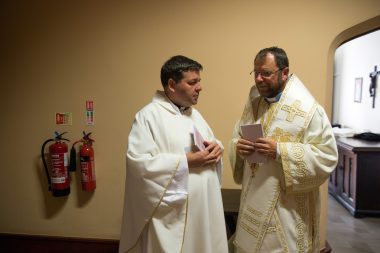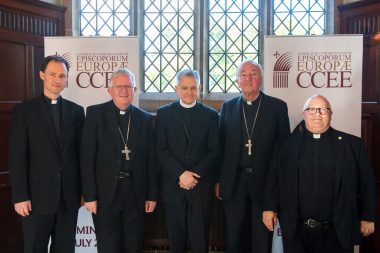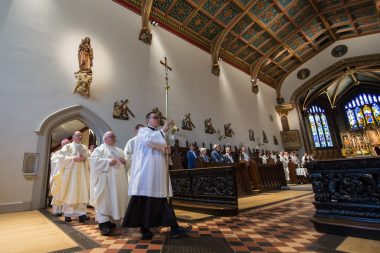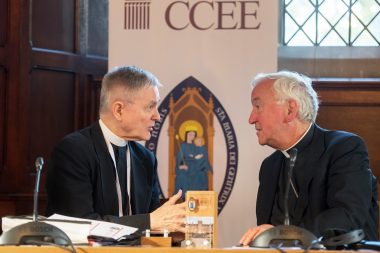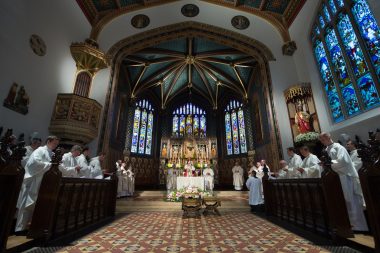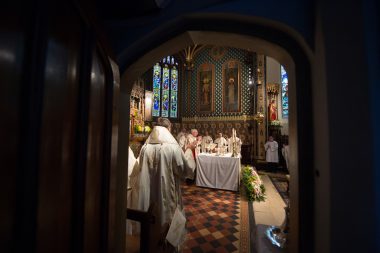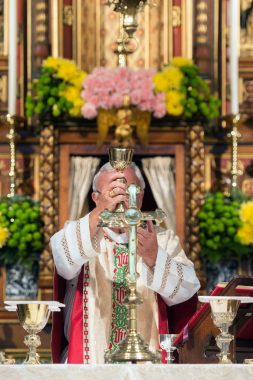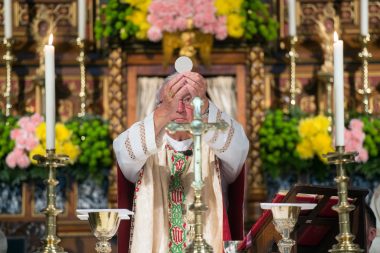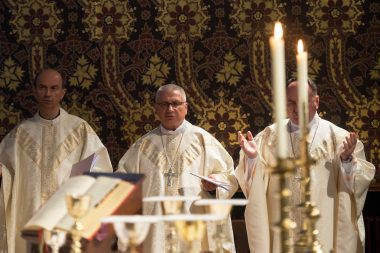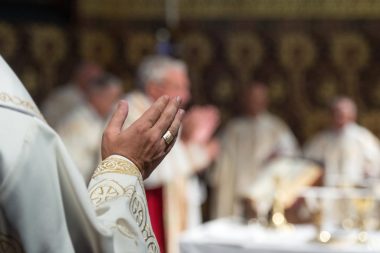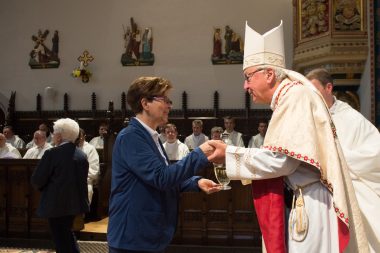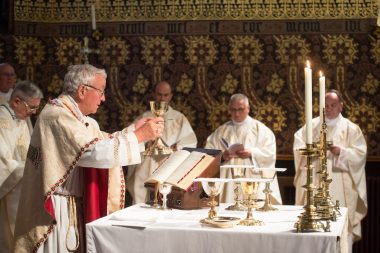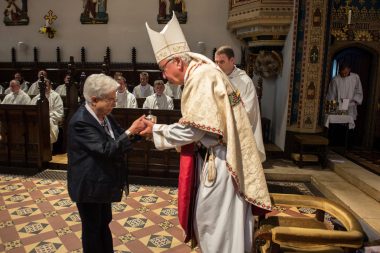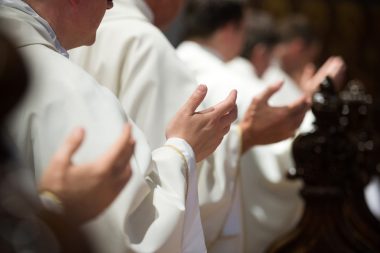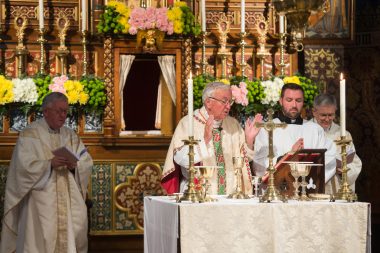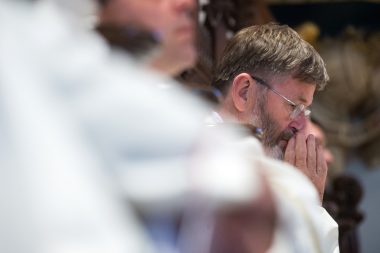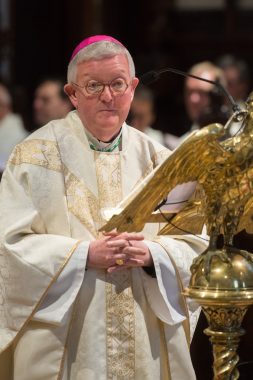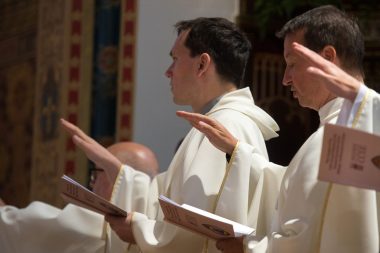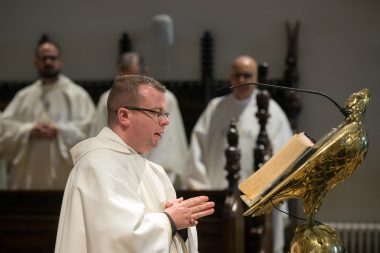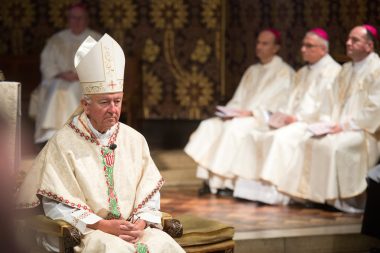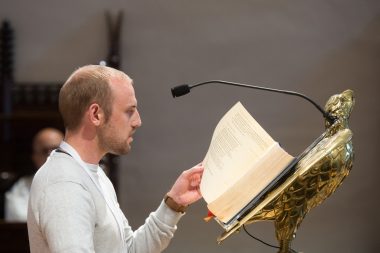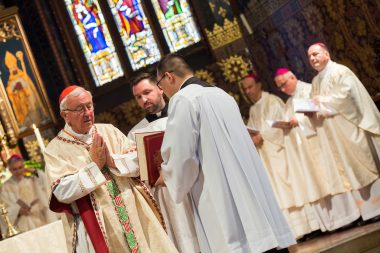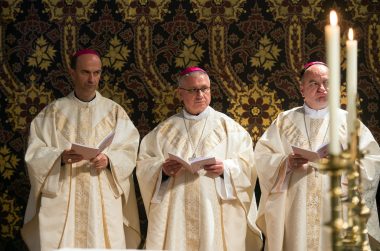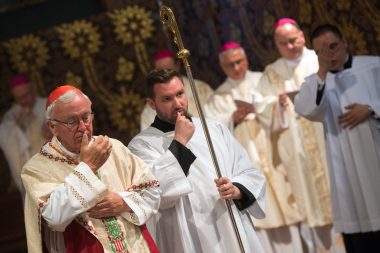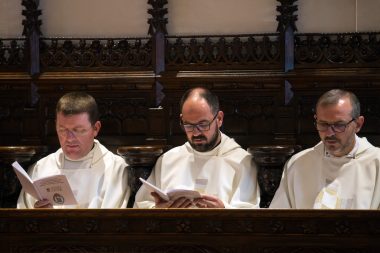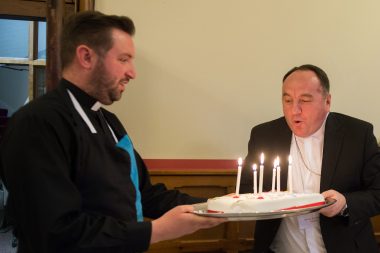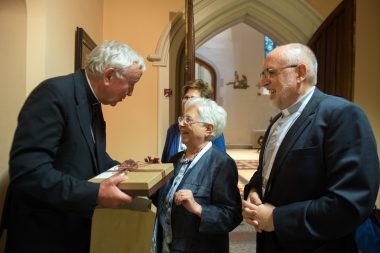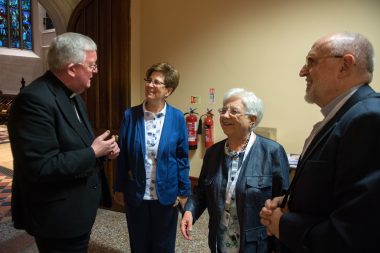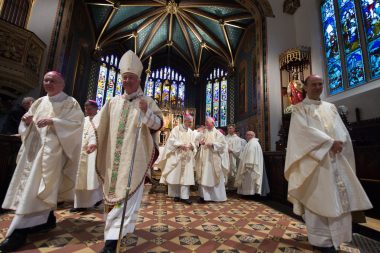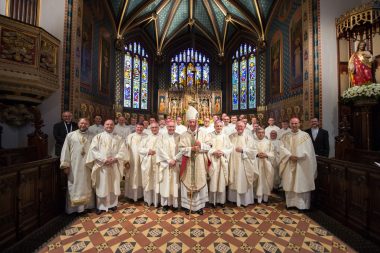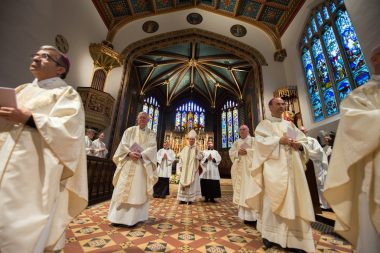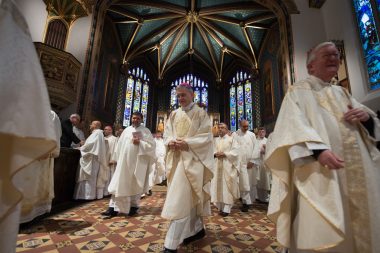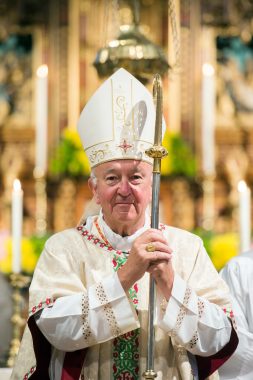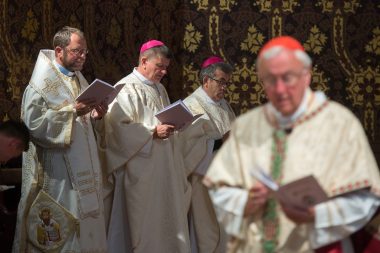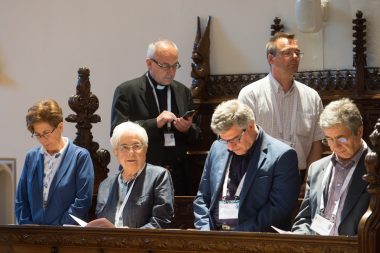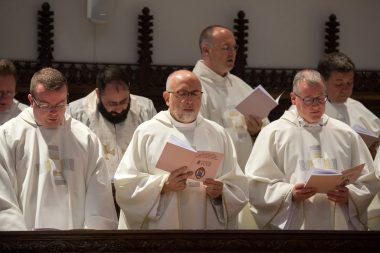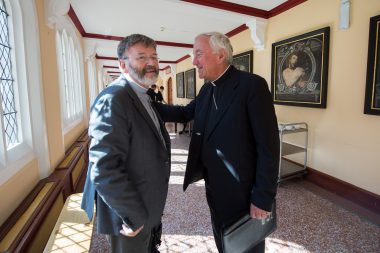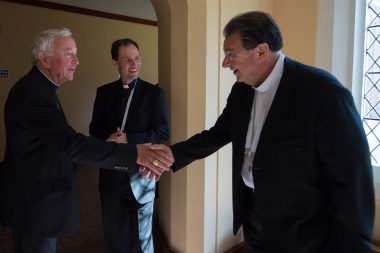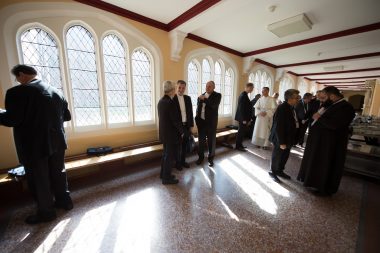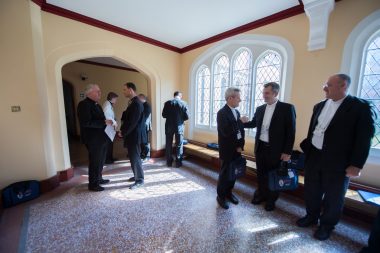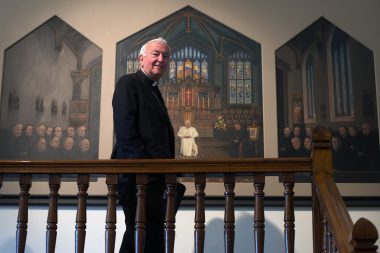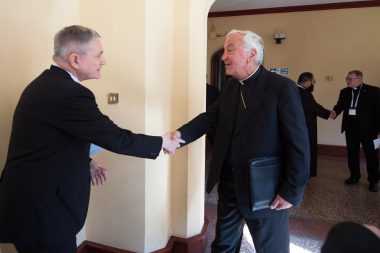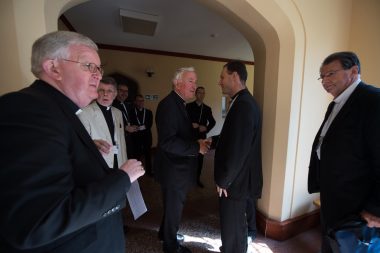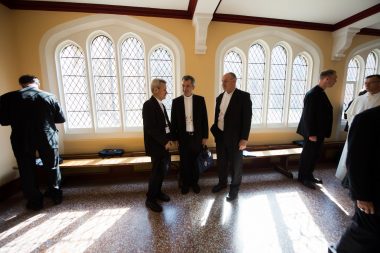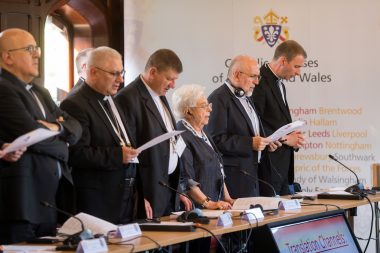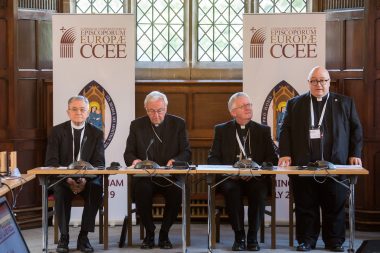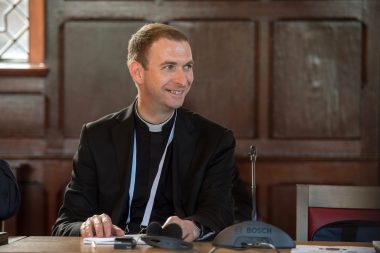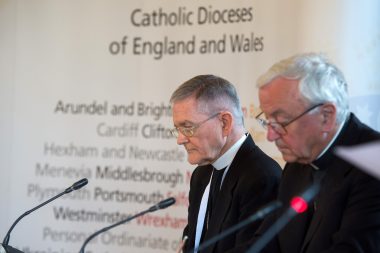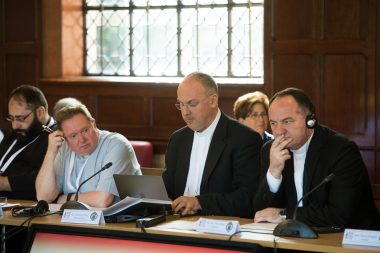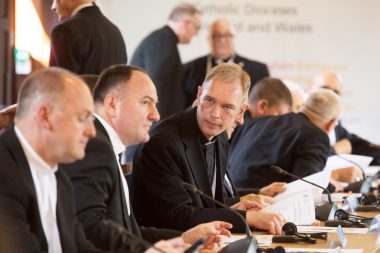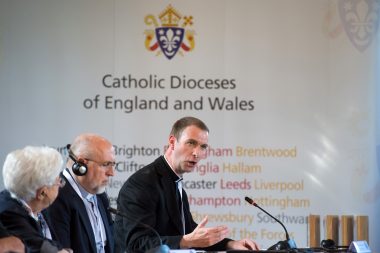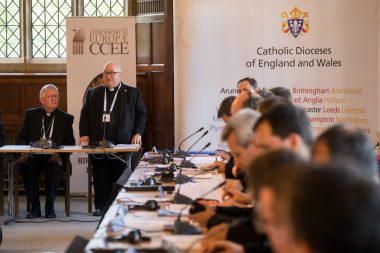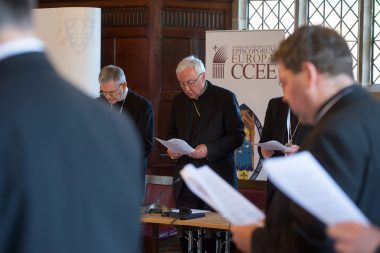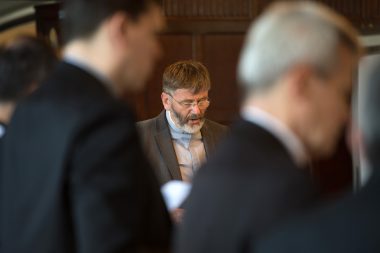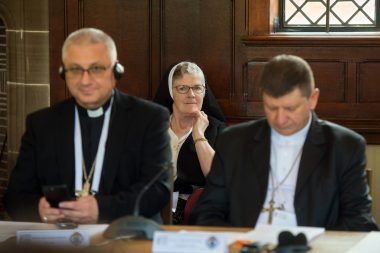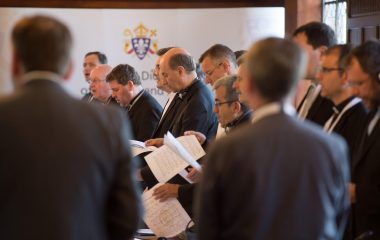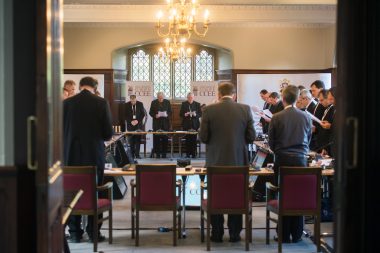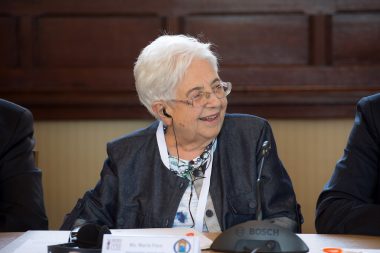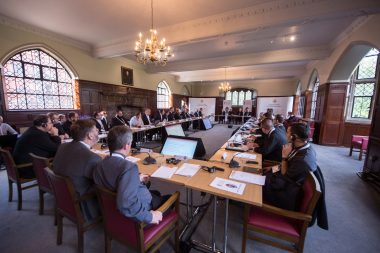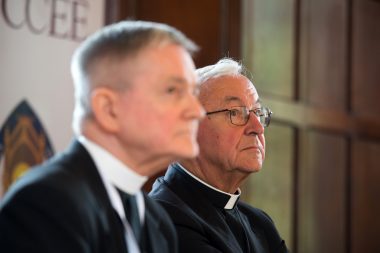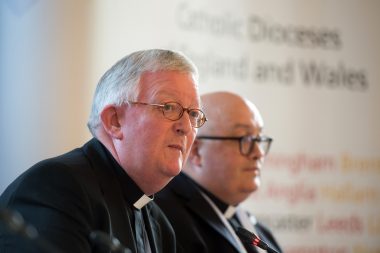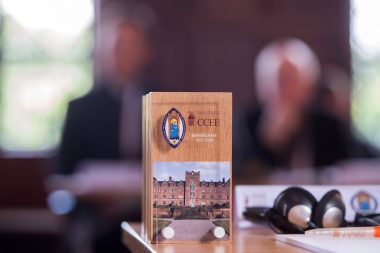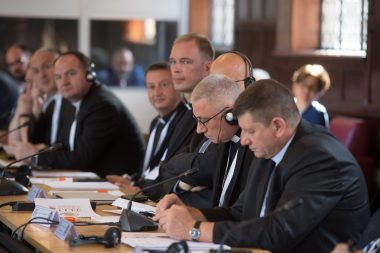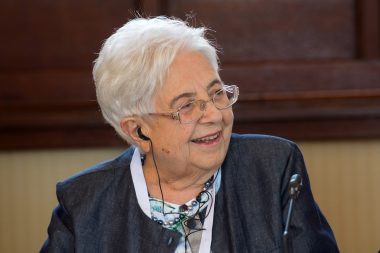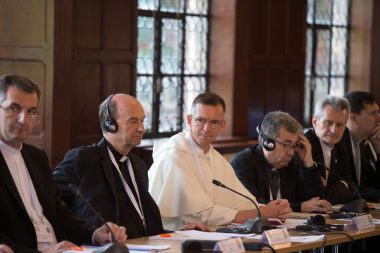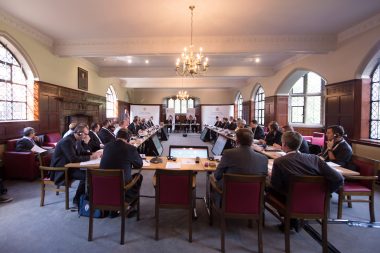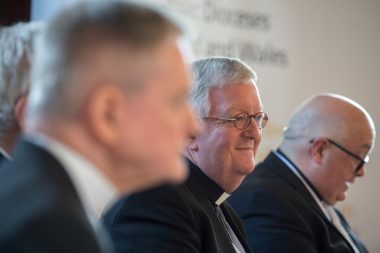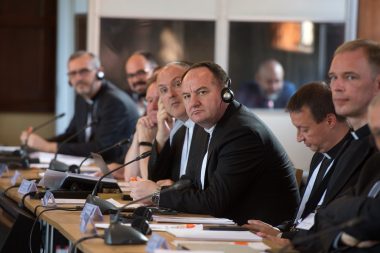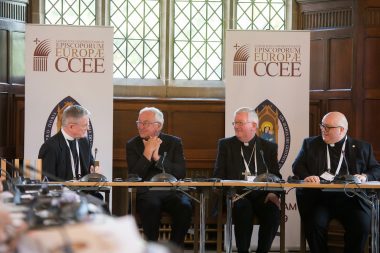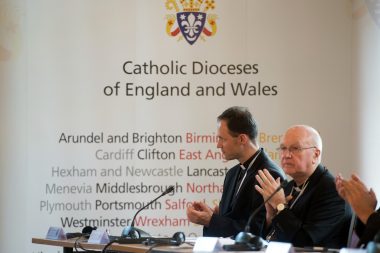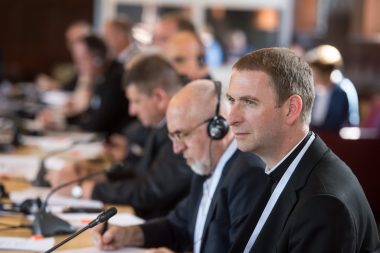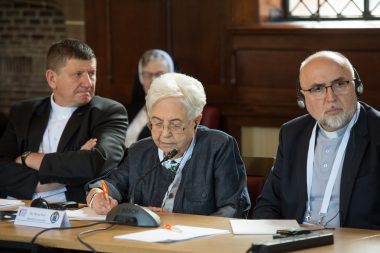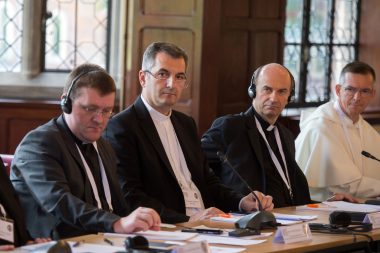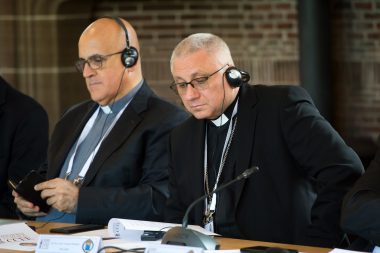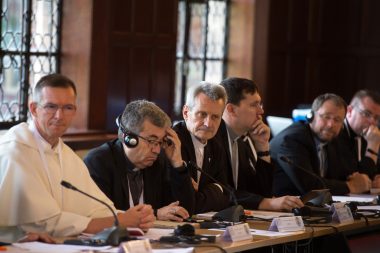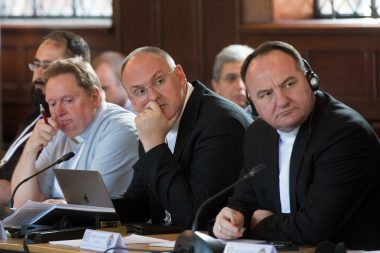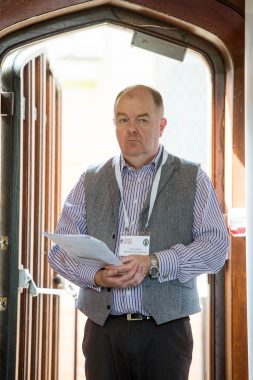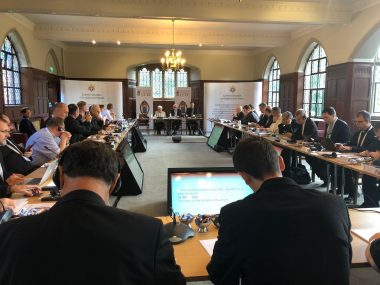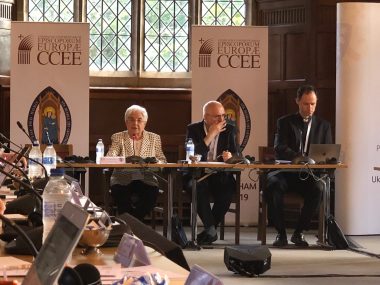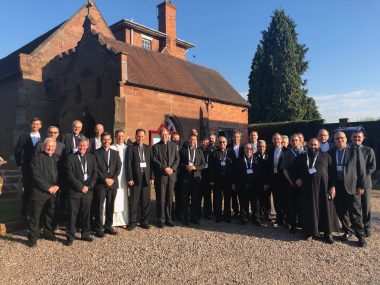The 47th meeting of the General Secretaries of the Bishops’ Conferences of Europe took place from 1 to 4 July in Birmingham. The Rector and seminarians of St. Mary’s College Oscott in Birmingham welcomed the 40 participants from 27 Episcopal Conferences, precisely on the day when Pope Francis announced the date of canonization of the Blessed Card. John Henry Newman who received his Confirmation there after his conversion to Catholicism and there he preached the sermon of the “second spring” in 1852 on the occasion of the establishment of the Catholic hierarchy in England.
At the centre of the reflection was the relationship between the hierarchical and charismatic dimension in the Church. After the initial greetings of H.E. Mgr. Edward Joseph Adams, Apostolic Nuncio in Great Britain, of H.E. Mgr. Bernard Longley, Archbishop of Birmingham and of Card. Vincent Nichols, Archbishop of Westminster and Vice-President of CCEE, was Fr Martin Michalíček, CCEE General Secretary, to introduce the theme of the meeting that is inspired by the document of the Congregation for the Doctrine of the Faith “Iuvenescit Ecclesia” of 2016.
To talk about the charismatic dimension of the Church, Dr. Maria Voce, President of the Focolare Movement, was invited and recalled in her speech entitled “Petrine profile and Marian profile: together for a new Pentecost” that there is “co-essentiality of hierarchical and charismatic gifts in the Church. Aroused by the same Spirit, they both have the same origin and the same purpose, even in the diversity of roles and tasks, “and that it is necessary to find the operational modalities to conjugate, in praxis the two dimensions: the “movements and generally the Communities which are born of a charism, we need to live well embedded in the whole ecclesial structure to which we belong, and to cultivate a fruitful interchange with all the other realities but also the local Church. The dioceses and the parishes, I think need to be open to the richness and variety of the charisms they carry within them”. Co-essentiality but also synodality and reciprocity, Maria Voce emphasized, which necessarily lead to going out, to projecting oneself outside, overcoming the temptation to self-preservation: “ensuring the ecclesial nature of the charisms should not mean relegating them to the Church, but rather push them outwards, each according to its own specificity. It is not a question of doing the same thing all together, standing still “at home”, but of setting out in the most diverse directions, animated by the common anxiety to reach the ends of the earth”. Finally, focusing on a perspective particularly dear to Chiara Lubich, she indicated the Marian profile of the Church as a dimension that “teaches us how to give life to a genuinely generative pastoral care”.
The Archbishop Emeritus of Southwark, S.E. Bishop Kevin McDonald, former Secretary of the Pontifical Council for Promoting Christian Unity, gave the second report on “Charism and Institution: questions and horizons”. His speech begins with what Pope Francis said about the Catholic charismatic renewal in the Charis statutes because it opens up some very relevant theological and cultural perspectives on the subject: Pope Francis had the personal and direct experience of the Charismatic Renewal from the times in which he was Archbishop of Buenos Aires and that context significantly influenced his perception of the Renewal. He described the Renewal as “a current of ecumenical grace”. This is crucial. For him the Charismatic Renewal is an intrinsically ecumenical reality and a gift, and I say this to point out from the beginning that our topic has a clear ecumenical dimension”. The charismatic renewal is therefore an ecumenical grace. A gift poured out on all Christians and therefore a grace that should bring Christians together, which should encourage reconciliation between separate Christian communions: “an integral dimension of the Charismatic Renewal consists in recognizing the gifts of one another and precisely because this is a dimension of progress towards world peace. And this of course, is true in Europe as in any part of the world. In his analysis of “Iuvenescit Ecclesia” he refers to the Second Vatican Council and to some essays written in the decade after the Council to affirm that this issue cannot be treated simply as a problem within the Catholic Church because when dealing with the question of charisms, the horizons widen. And he concludes: “the key word must surely be the discernment of which Pope Francis speaks a lot. The discernment of gifts within the Church is vital, but discernment must also be exercised in relation to the broader cultural and religious horizons that form the globalized world in which we live”.
The work is then continued with the presentation of the activities of the four CCEE Commissions (Evangelization and Culture, Family and Life, Youth, Pastoral Social Care) carried out over the last year.
Finally, there was ample exchange of experience and sharing of information by all the General Secretaries who reported on the activities carried out in the individual Episcopal Conferences and presented the commitments scheduled for next year.

